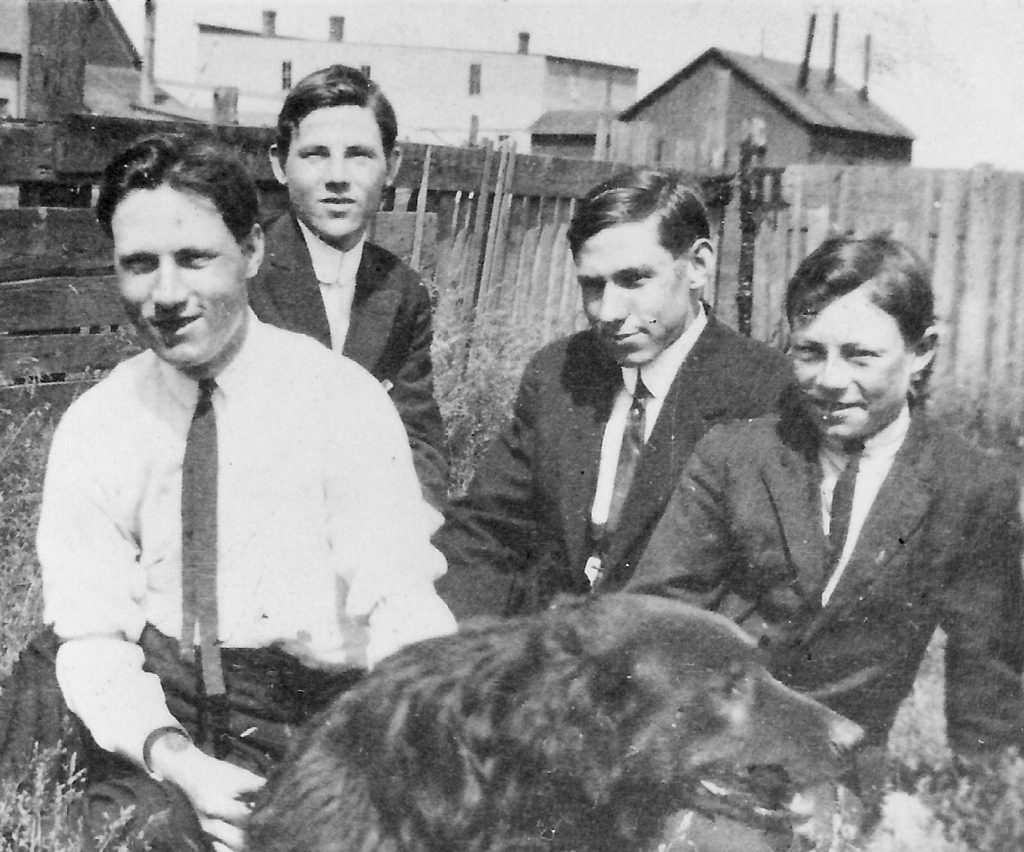
Left to Right: Eugene Swingle (brother), Vern Swingle, Walter Burkowitz (uncle) and George Swingle, (brother), Circa 1910. Photo Courtesy Don Linderoth
Vern Erwin Swingle was born in Manistique on May 10, 1896 to Charles and Lena Swingle of 128 South Houghton Avenue. He grew up in Manistique and graduated from Manistique High School. After graduation, he worked in this city until obtaining employment in an automobile factory in Pontiac, Michigan.
Swingle enlisted in the United States Marine Corp in Detroit the day after America’s entry into the war in April of 1917. He was the first Manistique soldier to go overseas and the first to lay down his life for his country. Swingle was killed in action in France on June 11, 1918. He served in the 6th USMC Regiment, 2nd Division. A few weeks before his death, Swingle wrote to a friend in Manistique about the horrors of war. “A fellow doesn’t know what war means until he gets up at the front line and sees a village ripped to pieces by big gun fire—all in the space of a few minutes.”
His parents were notified of his death by a letter from his platoon commander, Lieut. Johnson. “I have known your son for nearly a year as he has been under my command that long and have noticed in particular his conduct and everyday life, and found him to be a perfect gentleman as well as a faithful and dutiful soldier in every respect. We miss him very much but his memory will ever be near, and close to me and his entire company. We all mourn the death of one of our company comrades, but the will of our Father be done.” Besides his parents, he left three brothers, four sisters and a host of friends to mourn his loss. Vern Swingle was buried at the Aisne-Marne American Cemetery in Belleau, France. He was 22 years old.
(The following is a letter received by Jack O’Brien of Manistique from Vern Swingle just two weeks before his death.)
Somewhere in France
May 26, 1918
Dear Jack,
Have only received one letter from you and I suppose my letter was lost. That’s always the way. I surely am glad to hear from my friends at any time. You don’t know how blue a fellow feels if mail comes from the states and there’s none for him. This is certainly a lot different than at home. A fellow doesn’t know what war means until he gets up at the first line and sees a village ripped to pieces by big gun fire—all in the space of a few minutes.
I haven’t been able to locate any of the home fellows yet, but our outfit may get into their sector some time or other. I’m sorry I can’t write more about the country but I’m afraid the censor wouldn’t let it through. “Taps” is blowing so will have to lay off for this time. Answer soon.
Vern
Corp V. E. Swingle, 76th Co., 6th Regt. U.S.M.C.
